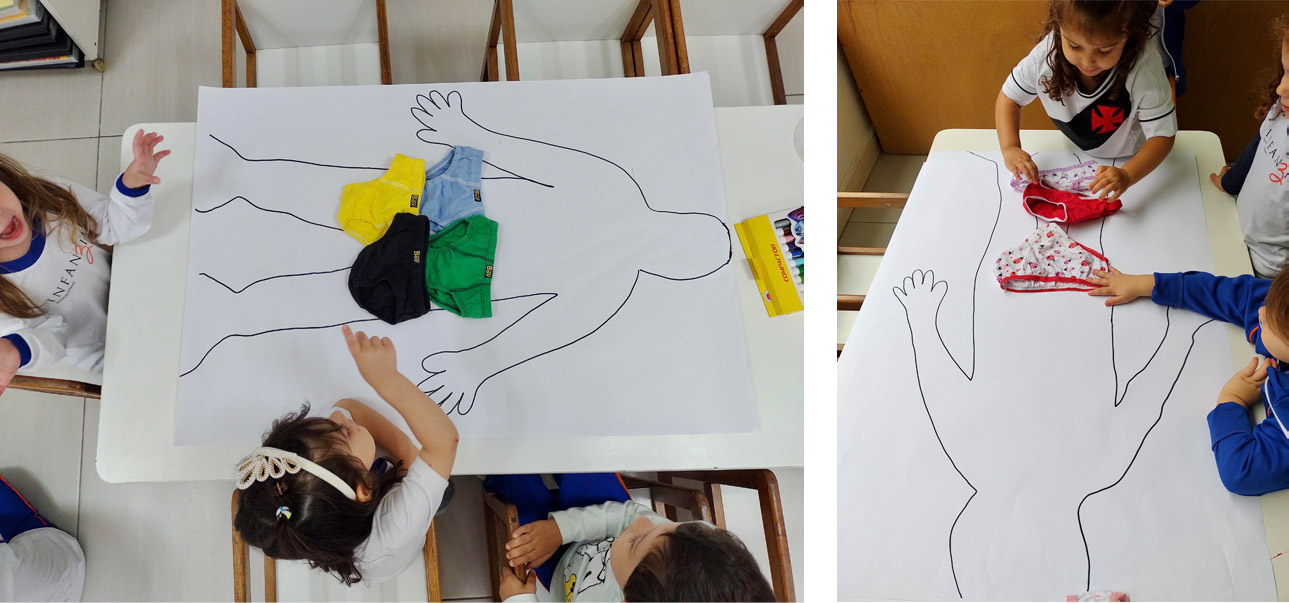When the child is two years old, ditching the diaper becomes a concern and desire of families.
As Maíra Dourado tells us, controlling the sphincters is not a process taught to the child, but, above all, a process of awareness about his body and himself that happens as the child develops.
It is not taught to ditch the diaper. Enjoyment should happen when the child begins to show signs that the time has come. Therefore, it is inadmissible to think of a “school” ditching, in which everyone should do it at the same time.
The signs of ditching are individual. Each child gives at a certain time – between two and three years old – clues that he is prepared to control the sphincters.
For example, she no longer wants to be on her feet all the time, has an understanding language, says “no” when she doesn’t want to do something, manages to put some things in their place, likes to imitate others, begins to have regularity in her bowel movements and to know your own body. (BARBOSA; QUADROS, 2017, p. 62)

It is with the family that the child establishes the first affective bonds: the first bath, breastfeeding, diaper changes, the first stories and songs…
These moments of care take on an even deeper dimension if we consider the constitution of the subject, because, when being cared for, the child progressively understands the world in which he is inserted and who he is in this world.
For the most part, care first takes place within the family and is later extended to other spaces.
At Infanzia, when we notice the first signs of ditching the diaper, we invite the family to a meeting, where we guide them and set a “date” to start the ditching.
This beginning takes place at home, on a weekend, because we understand that it is in the family environment that the child has what is usual for him, with bonds strong enough not to leave him insecure or afraid, with the continuity of “being without diaper”, on Monday, at school.
In every learning process it is common to have advances and setbacks. It may happen that a child starts to enjoy toileting and already uses the toilet and, for some special reason, pees and poops on his clothes again. When this occurs, the school will try with the family to establish new strategies to favor the child’s progress.

In the words of Maíra Dourado, scholar and researcher of early childhood, in some situations, there are families who resist the ditching process. Sometimes because they don’t realize that the “baby” has grown, sometimes because they don’t want to face the challenge of accompanying the ditching of the diaper, after all, it takes effort and dedication on the part of the adult to guarantee the child’s performance in this process.
But the fact is: if the child already gives clues that it is necessary to start, there is no reason to postpone this beginning. Delaying diaper ditching is not favorable for the child’s development.
It is worth remembering: the child needs to demonstrate that he is starting the process and the adult should never impose this beginning.
In the same way, if the child already has all the conditions for ditching, it does not justify the permanence of the diaper.
It is important to be clear that the partnership between family and school is fundamental for the ditching to happen in a welcoming and peaceful way for the child.
Bibliographic references:
Golden, Maria. The ditching in Early Childhood Education. Ebook. Accessed in November 2022. Personal collection.
BARBOSA, Maria Carmen S.; QUADROS, Vanessa da S. R. de. Everyday learning: children’s personal care as a curricular gesture. Magazine: Open. v.30. n.100. Sep-Dec. Brasilia: 2017. p.45-70.
